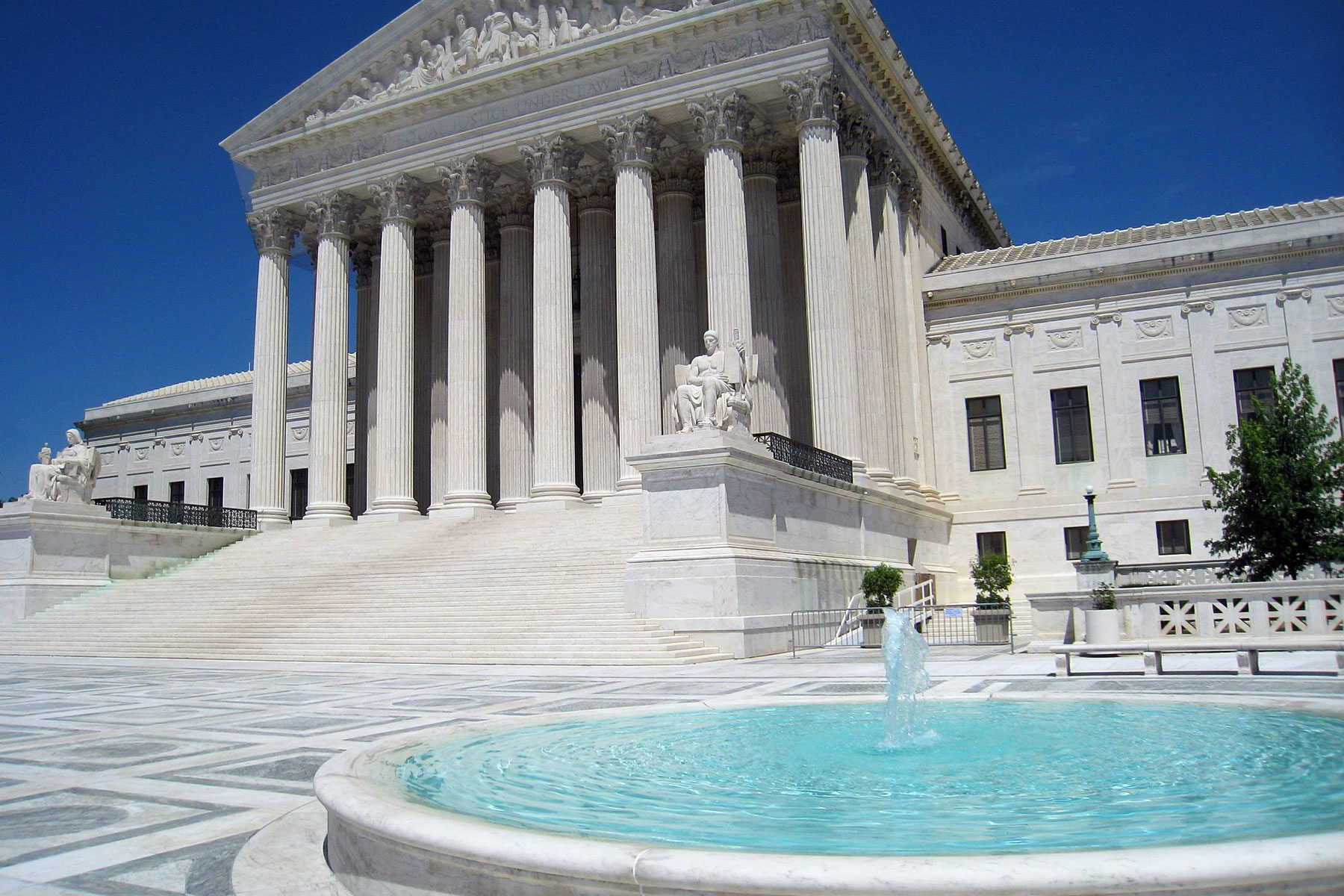
“This hateful policy is a catastrophe all around – not only for those who simply want to travel, work, or study here in the States, but for those seeking safety from violence as well. While this decision doesn’t address the separate and equally harmful ban on refugees, it cruelly traps people in conflict-afflicted countries and prevents them from seeking safety in the U.S. or being reunited with family. Some of the people banned from this policy are fleeing conflicts that the United States has had a direct hand in creating or perpetuating, as is the case in Yemen and Syria. In those cases especially we are essentially lighting a house on fire and locking the escape door shut. This ban, and the anti-Muslim sentiment in which it originated, has no place in a country that claims to value human rights.”
– Ryan Mace, Amnesty International USA
In a 5-4 ruling, the Supreme Court of the United States upheld the Trump administration’s third Muslim travel ban. Organizations have challenged every version of the ban. Like previous versions, this one blocks immigrants and temporary visitors from several Muslim-majority countries. The legal position officially changed the policy of America from a nation build by immigrants to one that forbids them.
The supreme court weighed the legality of the third iteration of Trump’s travel ban, which sought to bar or limit immigrants from Iran, Libya, Syria, Somalia, and Yemen. North Korea and Venezuela were also among the countries listed in the ban, but their presence was not challenged in court.
As it awaited oral arguments, the court enabled Trump’s third executive order to go into effect last December. Although the administration has argued it was not banning travel from the list of countries entirely, the state department’s own numbers have shown a minimal number of exceptions have been granted.
The Supreme Court decision comes after several federal court rulings over the last year invalidated or scaled back earlier versions of the travel ban, which was one of the first major policies Trump enacted after coming into office. During his presidential campaign, Trump tweeted and released a press release openly stating that the policy is intended to “prevent Muslim immigration.”
In his majority opinion, Chief Justice John Roberts acknowledged that Trump had made many statements concerning his desire to impose a “Muslim ban,” but argued “the issue before us is not whether to denounce the statements. It is instead the significance of those statements in reviewing a presidential directive, neutral on its face, addressing a matter within the core of executive responsibility.” To that end, he concluded, “The proclamation is expressly premised on legitimate purposes: preventing entry of nationals who cannot be adequately vetted and inducing other nations to improve their practices.”
Interestingly, even as the travel ban was upheld, the Court overruled Korematsu v. United States, the landmark 1944 decision that endorsed the detention of Japanese-Americans during World War II. Roberts wrote that it was “objectively unlawful and outside the scope of presidential authority. But it is wholly inapt to liken that morally repugnant order to a facially neutral policy denying certain foreign nationals the privilege of admission.”
Justice Sonia Sotomayor wrote in her dissent that based on the evidence in the case, “a reasonable observer would conclude that the Proclamation was motivated by anti-Muslim animus.” She writes:
The Court’s decision leaves undisturbed a policy first advertised openly and unequivocally as a ‘total and complete shutdown of Muslims entering the United States’ because the policy now masquerades behind a façade of national-security concerns. President Trump has never disavowed any of his prior statements about Islam. Instead, he has continued to make remarks that a reasonable observer would view as an unrelenting attack on the Muslim religion and its followers.
She added that her colleagues on the court arrived at the opposite result by “ignoring the facts, misconstruing our legal precedent, and turning a blind eye to the pain and suffering the Proclamation inflicts upon countless families and individuals, many of whom are United States citizens.”
The Trump-Pence Administration’s Muslim Ban on persons from Muslim-majority countries has been widely decried as racist and xenophobic with no discernible significant benefit to the safety of Americans.
International Refugee Assistance Project v. Trump was brought by the American Civil Liberties Union, ACLU of Maryland, National Immigration Law Center, and the International Refugee Assistance Project, on behalf of HIAS, IRAP, the Middle East Studies Association, Yemeni American Merchants Association, and the Arab American Association of New York.
“This ruling will go down in history as one of the Supreme Court’s great failures. It repeats the mistakes of the Korematsu decision upholding Japanese-American imprisonment and swallows wholesale government lawyers’ flimsy national security excuse for the ban instead of taking seriously the president’s own explanation for his action. It is ultimately the people of this country who will determine its character and future. The court failed today, and so the public is needed more than ever. We must make it crystal clear to our elected representatives: If you are not taking actions to rescind and dismantle Trump’s Muslim ban, you are not upholding this country’s most basic principles of freedom and equality.”
– Omar Jadwat, ACLU Immigrants Rights Project
Jill Welch: America must rise above racism and xenophobia
“The United States has prided itself on being a country that welcomes people from foreign lands on the founding premise of religious freedom and equal opportunity for all. The only way we can stand as a beacon of hope for all, regardless of religion or ethnicity, is if we continue to evolve toward a more perfect union whose policies fully represent these ideals. Today, we have taken a giant step backward as the Supreme Court ruled to uphold a ban perceived around the world as a thinly-veiled attempt to target Muslim-majority nations. Students from around the globe come here to study, research and grow in our world-class institutions because they believe that America offers freedom and the highest-quality education—and our nation has thrived because of our strength in diversity, not in spite of it. This is evidenced in the simple fact that almost half of all Fortune 500 companies were started by immigrants or their children. Yet, despite this great legacy, today’s Supreme Court’s ruling to uphold the travel ban tarnishes our reputation and casts doubt in the minds of all students and scholars around the world that the United States is a welcoming nation that fosters religion freedom. Today, they are wondering: ‘is the United States still the country where we will be welcomed, where we can study or build a business?’ At a time when we should be making every effort to create connections and ties around the world through robust international exchange with all nations, especially those in the Middle East, the Supreme Court’s decision poses a grave threat to our national security and keeps us from building those necessary relationships abroad. While universities and colleges work tirelessly to welcome international students and scholars, the chilling effect of this policy and the uncertainty for our international students and scholars will undoubtedly continue the current downturn in U.S. international student enrollment as the world wonders whether America will hold true to our values. Today, the United States can be seen as a country that bans people from our shores, not on the basis of what they have done, but for where they are from.”














